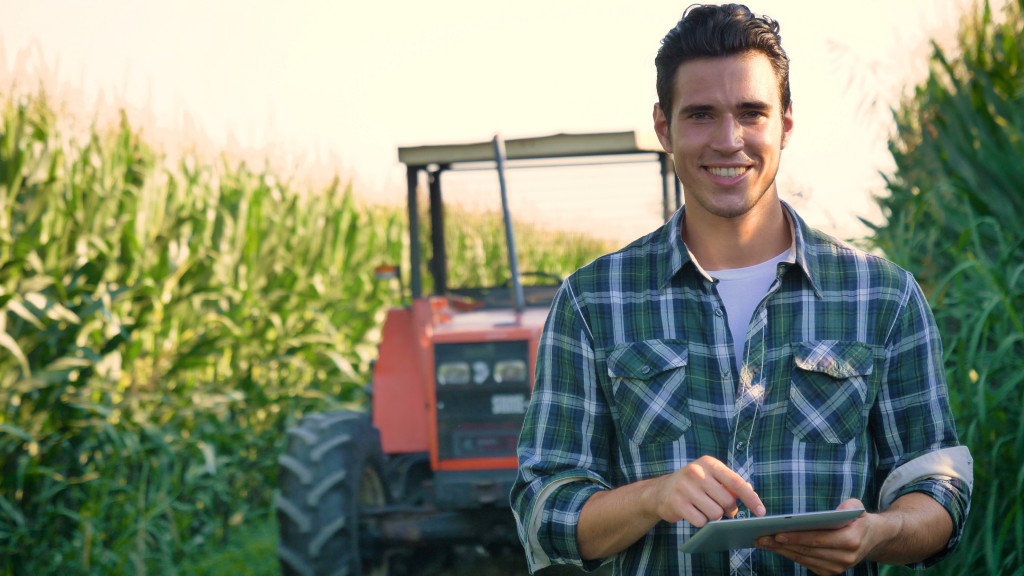- First, consider the vehicle’s purpose, towing capacity, cargo space, and maintenance and operating costs.
- Determine if a lifted truck, trailer, cargo van, or ATV is the best option for your farm business.
- Lifted trucks are great for rugged terrains and towing heavy loads.
- Trailers are versatile and detachable for flexible usage.
- Cargo vans are more practical and fuel-efficient than trucks.
Running a farm is challenging, and having the right equipment is crucial to your success. When purchasing a vehicle for your farm business, many factors must be considered.
Given the multitude of choices available, it can become quite a daunting task to decide on the most suitable option. However, buying the right vehicle will save you time and money in the long run. This blog post will discuss the key considerations when purchasing a car for your farm business.
Purpose
When purchasing a vehicle for your farm business, you first need to consider the vehicle’s purpose. What tasks do you need the car to perform? Do you need a truck to haul equipment and materials, or will a compact SUV suffice? If you need a vehicle for off-road work, you may need to consider a four-wheel drive. A regular sedan might work if you only need a vehicle for light farm work.
Towing Capacity
When considering a vehicle for your farm business, you must also factor in towing capacity. How much weight do you need to haul? Check the manufacturer’s tow rating to ensure the vehicle can safely tow your equipment and materials. If you exceed the vehicle’s towing capacity, you risk damaging your car and putting yourself and others in danger.
Cargo Space
Farm equipment and materials can be bulky and may require a significant amount of space to transport. When selecting a vehicle, consider the cargo capacity and ensure it can accommodate your needs. A truck with a large bed may be the best option for hauling bulk items, while an SUV with fold-down seats may give you more versatility for transporting various types of equipment.
Maintenance and Operating Costs

The cost of purchasing a vehicle is only the beginning of your investment. Consider the vehicle’s maintenance and operating costs before making your final selection. Will the car require regular oil changes, tire rotations, and other maintenance? How much fuel does it consume? Check customer reviews online or talk to other local farmers to get an idea of the expected servicing costs and fuel economy of the vehicles you are considering.
Deciding What Car to Buy
Whether transporting livestock, feed, equipment, or simply getting from one location to another, having a reliable mode of transportation is crucial. However, with such a wide range of options available, figuring out which vehicle is best suited for your farm business can be challenging.
Lifted Trucks
Lifted trucks are an excellent option for farms that require heavy-duty transportation. Ideal for rugged terrains and muddy fields, these vehicles can easily handle rough farming conditions. They’re also great for towing heavy loads such as trailers or livestock carriers.
However, buying brand new may be expensive, so you may want to consider buying pre-owned lifted trucks at more affordable prices. These vehicles can provide reliable transportation for your farm business without breaking the bank. Plus, you can always customize the car to your specific needs.
Trailers
Trailers are another versatile option for farm transportation. They’re available in various sizes and designs, making selecting the right one to suit your needs easy. Whether you need to transport livestock or equipment, trailers offer ample space to accommodate everything. Additionally, their detachable nature allows for flexible usage, allowing farmers to repurpose them differently.
Cargo Vans
Cargo vans are an excellent option for farmers moving smaller loads around their farms. These vehicles are perfect for delivering produce, picking up supplies, or carrying smaller equipment.
Cargo vans are more fuel-efficient than lifted trucks and can comfortably navigate narrower roads. Ultimately, they’re a more practical choice if your farm business needs everyday transportation that is more cost-effective and fuel-efficient.
ATVs
All-terrain vehicles (ATVs) are popular among farmers because they can navigate challenging terrains, particularly on smaller farms. They’re perfect for carrying smaller loads or livestock and are incredibly easy to maneuver. ATVs also have a lower running cost than traditional trucks and vans, making them a more viable option for farmers operating on a tight budget.
The Bottom Line
There are many factors to consider when purchasing a vehicle for your farm business. First, consider the vehicle’s purpose, towing capacity, cargo space, and maintenance and operating costs. Then, examine the vehicle’s durability and resale value. By considering these fundamental considerations, you can select the right car for your farm business, saving you time and money and helping your business operate smoothly and efficiently.


